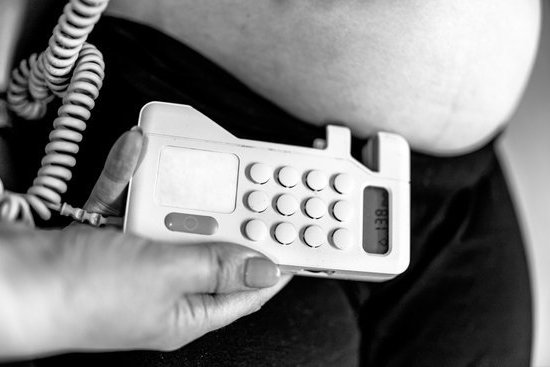When do pregnancy symptoms start? As women anticipate the possibility of pregnancy, understanding the early signs and symptoms is essential. From conception to the early stages of pregnancy, it’s important to be aware of potential indicators. This article explores the timeline of when pregnancy symptoms typically begin, common and uncommon early pregnancy symptoms, personal experiences, and tips on differentiating between early pregnancy symptoms and premenstrual symptoms.
Conception and the early stages of pregnancy can be a mysterious and miraculous process for many women. It involves a complex series of events that result in the development of a new life. Understanding this process can help women recognize the signs of early pregnancy when they occur.
The most common early pregnancy symptoms include missed periods, nausea, and fatigue. However, there are also lesser-known symptoms such as food aversions and a heightened sense of smell that some women experience. By being aware of these potential indicators, women can better recognize when their body may be signaling the beginning of a pregnancy journey.
Conception and Early Pregnancy
The journey of pregnancy begins with conception, which occurs when a sperm fertilizes an egg. This typically happens in the fallopian tube and forms a zygote, marking the start of pregnancy. The zygote then travels down to the uterus where it implants into the lining, leading to the development of an embryo. At this stage, many women may not yet be aware that they are pregnant.
As the embryo develops, key structures such as the brain, heart, and spinal cord begin to form within the first few weeks after conception. During this time, hormonal changes occur in a woman’s body to support the growth and development of the embryo. These early stages are crucial in determining the baby’s health and well-being throughout the entire pregnancy.
Understanding these early processes is essential for recognizing when pregnancy symptoms may start to appear. While some women may experience symptoms as early as a week or two after conception, others may not notice any significant changes until several weeks later. It is important to remember that every woman’s body is unique, and therefore experiences with pregnancy symptoms can vary widely from person to person.
| Early Pregnancy Signs | Timeline |
|---|---|
| Missed Period | Around 4-6 weeks after conception |
| Nausea/Morning Sickness | Generally starts around 6 weeks after conception |
| Fatigue | Can begin as early as 1-2 weeks after conception |
Common Early Pregnancy Symptoms
During the early stages of pregnancy, the body goes through a series of changes as it prepares to nurture a growing fetus. These changes can result in various symptoms that serve as indicators of pregnancy. Some of the most common early pregnancy symptoms include:
1. Missed period: One of the earliest and most widely recognized signs of pregnancy is a missed period. This occurs when fertilization takes place, and the embryo implants itself onto the uterine wall, disrupting the regular menstrual cycle.
2. Nausea and vomiting: Often referred to as morning sickness, nausea and vomiting are common early pregnancy symptoms that typically start around 6 weeks into the pregnancy. Although commonly associated with mornings, these symptoms can occur at any time of day.
3. Fatigue: Feeling tired and experiencing a lack of energy is another common symptom experienced by many women during early pregnancy. It is often attributed to hormonal changes and increased demands on the body as it works to support fetal development.
These symptoms can vary in intensity and duration from woman to woman, but they are generally consistent indicators of early pregnancy.
Some women may experience these symptoms just a few days after conception, while others may not notice any changes until several weeks into their pregnancies. It ultimately depends on individual differences in hormone levels and other factors affecting each woman’s body. If you think you may be pregnant or have been trying to conceive, paying close attention to these potential early signs can provide valuable information about your current reproductive status.
When Do Pregnancy Symptoms Start
Pregnancy symptoms can vary greatly from woman to woman, but they generally start to appear within the first few weeks after conception. For some women, the earliest signs of pregnancy can be felt as early as a week or two after conception, while for others, it may take longer for these symptoms to become noticeable. It is important to remember that every woman’s body is different, and as a result, the onset of pregnancy symptoms can vary.
One of the most common early signs of pregnancy is a missed period. However, this can be caused by factors other than pregnancy, such as stress or hormonal imbalances. Other typical early symptoms include nausea, fatigue, breast tenderness, frequent urination, and food cravings or aversions. Some women also experience mood swings and heightened emotions as one of their earliest signs.
According to healthcare professionals and experts in obstetrics and gynecology, pregnancy symptoms typically start around 6-8 weeks after the last menstrual period (LMP). That being said, some women may start experiencing these symptoms even earlier. It’s also essential to note that every pregnancy is unique and the timing of symptom onset can vary widely from woman to woman.
Uncommon Early Pregnancy Symptoms
One of the lesser-known aspects of the early stages of pregnancy is the occurrence of uncommon symptoms that may not be widely recognized. While many people are familiar with common symptoms such as morning sickness and fatigue, there are several other indicators that women might experience when they first become pregnant. These unusual signs can vary from person to person, but it’s important to be aware of them in case they do arise.
Food Aversions
Some women may find themselves suddenly disliking foods that they previously enjoyed. This aversion to certain foods can be a surprising and unexpected indicator of pregnancy. It’s not uncommon for women to experience an aversion to strong-smelling or spicy foods, with the mere thought or smell of these items making them feel nauseated. If you find yourself turning away from foods you once loved, it could be an indication that you are expecting.
Heightened Sense of Smell
During early pregnancy, some women report a heightened sense of smell as one of their first noticeable symptoms. Strong smells that didn’t bother them before – whether it’s cooking odors, perfumes, or even body odor – can suddenly become overwhelming and unpleasant. This heightened sense of smell can contribute to nausea and food aversions, making it a particularly challenging symptom for some expectant mothers to manage in their daily lives.
Individual Experiences
As with all pregnancy symptoms, it’s essential to remember that each woman’s experience will be unique. Many women report experiencing these less common symptoms very early on in their pregnancies while others may never encounter them at all. By sharing personal stories about when different women first experienced uncommon pregnancy symptoms like food aversions and a heightened sense of smell, we can gain insight into the wide range of experiences during early pregnancy.
These unusual signs offer a different perspective on how pregnancy affects each woman differently and highlight the importance of paying attention to your body during this significant time in your life. Being aware of these lesser-known symptoms allows expectant mothers to recognize potential indicators earlier on, ensuring that they receive the appropriate care and support from their healthcare providers.
Individual Experiences
During the early stages of pregnancy, many women experience a range of symptoms that can vary in intensity and onset. Each woman’s experience with pregnancy symptoms is unique, and it’s important to understand that what one woman experiences may differ from another. Here are some personal stories from women about when they first experienced pregnancy symptoms:
1. Story 1: Sarah – “I didn’t realize I was pregnant until I missed my period, which was unusual for me because I always had a regular menstrual cycle. About a week after my missed period, I started feeling extremely tired all the time and had occasional bouts of nausea. That’s when I took a pregnancy test and it came back positive.”
2. Story 2: Emily – “For me, the first sign of pregnancy was actually food aversions. Suddenly, certain foods that I used to love made me feel nauseous just at the thought of eating them. It wasn’t until a couple of weeks later that I missed my period and realized that those food aversions were an early symptom of pregnancy.”
3. Story 3: Jessica – “I experienced heightened sense of smell very early on in my pregnancy. I would walk into the office break room and be overwhelmed by the smell of someone’s lunch from across the room. It wasn’t until a few days later that other symptoms like fatigue and breast tenderness kicked in, confirming my suspicion that I might be pregnant.”
It’s clear from these stories that pregnancy symptoms can manifest differently for each woman and at different times during the early stages of pregnancy.
In addition to these personal accounts, it’s important to note that some women may not experience any noticeable symptoms until several weeks into their pregnancies, while others may experience them as early as a week or two after conception. Understanding these individual experiences can help expectant mothers determine if what they are feeling is related to pregnancy or something else entirely.
During this time, it’s crucial to listen to your body and seek medical advice if you have any concerns about potential pregnancy symptoms_.
How to Differentiate Between Early Pregnancy Symptoms and Premenstrual Symptoms
Many women may wonder about the difference between early pregnancy symptoms and premenstrual symptoms. It can be challenging to distinguish between the two, especially if a woman is actively trying to conceive. Understanding the subtle differences can help alleviate anxiety and provide clarity during this crucial time.
One of the most important factors to consider when trying to differentiate between early pregnancy symptoms and premenstrual symptoms is timing. Typically, premenstrual symptoms appear in the days leading up to a woman’s period, while early pregnancy symptoms may arise around the time of a missed period. This timeline is crucial in determining whether the symptoms experienced are related to menstruation or possible pregnancy.
Another key aspect to consider is the nature of the symptoms themselves. While some symptoms such as fatigue and breast tenderness may overlap between premenstrual and early pregnancy experiences, others such as nausea and frequent urination are more commonly associated with early pregnancy. Keeping track of specific symptoms and their intensity can help in distinguishing between the two.
It is also essential to pay attention to any changes in mood or emotional well-being, as this can often be an indicator of either premenstrual or early pregnancy symptoms. Hormonal fluctuations during both menstrual cycles and early pregnancy can affect a woman’s mood, so being mindful of any significant shifts in emotions can provide valuable insight into what might be happening within the body.
Conclusion
In conclusion, understanding the early signs of pregnancy is crucial for anyone trying to conceive or who may suspect that they are pregnant. The process of conception and the early stages of pregnancy can be both exciting and overwhelming, but being aware of common early pregnancy symptoms can help individuals navigate this time with more confidence.
Additionally, it’s important to remember that each individual’s experience with early pregnancy symptoms can vary widely, as highlighted by the personal stories shared in this article.
It is clear from our exploration of when do pregnancy symptoms start that there is a wide range of timelines for when these symptoms may begin to manifest. From missed periods to food aversions, heightened sense of smell, nausea, and fatigue, it’s evident that each woman’s experience is unique.
Therefore, paying close attention to one’s body and learning to differentiate between early pregnancy symptoms and premenstrual symptoms can ensure that individuals seek appropriate medical care and support during the early stages of pregnancy.
In summary, the importance of listening to your body during the early stages of pregnancy cannot be overstated. Whether you are actively trying to conceive or simply curious about the possibility of being pregnant, recognizing and understanding these early signs is an essential part of this life-changing journey. By staying informed and attuned to your body, you can greet the beginning stages of pregnancy with greater awareness and preparedness.
Frequently Asked Questions
How Soon Can You Get Symptoms of Pregnancy?
Symptoms of pregnancy can appear as early as a week after conception, but for some women, they may not appear until a few weeks later. These symptoms include missed periods, breast tenderness, nausea, fatigue, and frequent urination.
How Long Until I Know if I’m Pregnant?
You can know if you’re pregnant by taking a home pregnancy test at least a week after your missed period. These tests work by detecting the hormone hCG in your urine, and most of them claim to be accurate as early as the first day of your missed period.
How Early Can You Detect Pregnancy?
Pregnancy can be detected as early as 6-12 days after conception through a blood test that looks for the presence of hCG. However, most women opt for a urine test, which can detect pregnancy about 10-14 days after conception or one day after a missed period.

Welcome to my fertility blog. This is a space where I will be sharing my experiences as I navigate through the world of fertility treatments, as well as provide information and resources about fertility and pregnancy.





